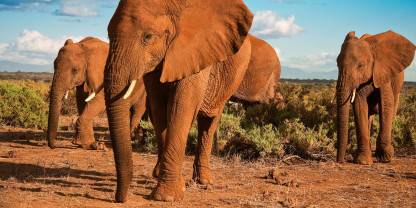Safety
Shaba National Reserve is a very safe destination in our opinion. Crime is rare in any of the parks and reserves in Kenya. In any case, you’ll be protected from any potential safety issues when on an organized tour. For current information about safety and traveling in Kenya, please check the travel advisories (see the ‘Governments’ Travel Advice for Kenya’ link below).
- General Travel Safety Precautions
- Cities & Urban Areas: Safety Precautions
- Safety & Security – Kenya
- Governments’ Travel Advice for Kenya
Malaria & Vaccinations
Consult your doctor regarding appropriate vaccinations before coming to Kenya. Shaba lies in a malaria area, so it’s advisable to take antimalarials. Other precautions include covering up at dusk and using mosquito repellent (those containing DEET are most effective). Malaria risk is greatest in and after the peaks of the rainy seasons from April to May and November to December.
Wildlife Viewing
Wildlife viewing is generally very safe and incidents are rare. As long as you listen to the instructions given by your guide, you should be fine. For more information, please read the ‘Wildlife Viewing Safety Precautions’ below.

